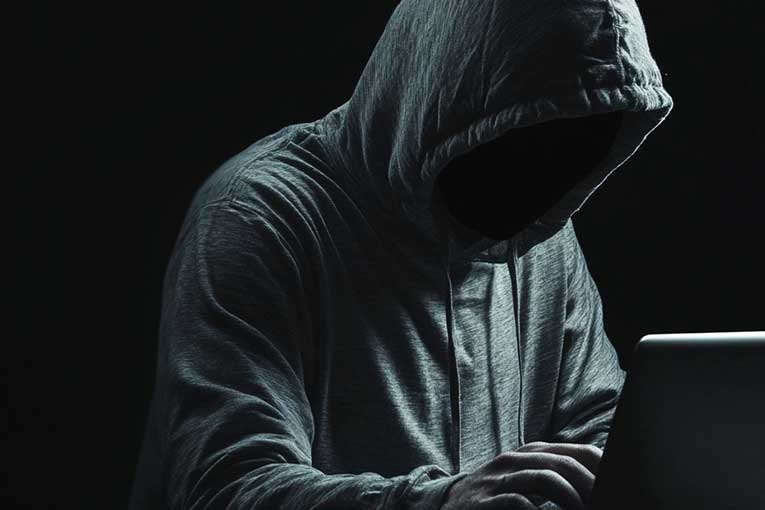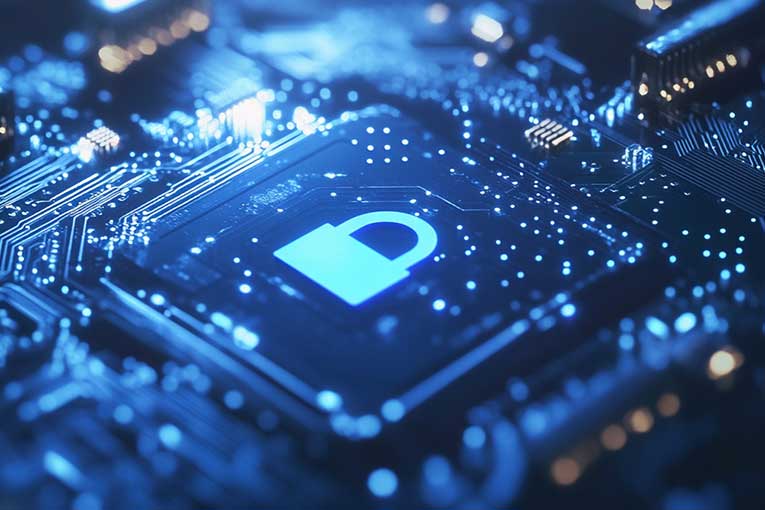Cyber Security News Aggregator
.Cyber Tzar
provide acyber security risk management
platform; including automated penetration tests and risk assesments culminating in a "cyber risk score" out of 1,000, just like a credit score.What Does Doxxed Mean & How to Respond?
published on 2024-11-01 08:00:00 UTC by Simon BurgeContent:
In the digital age, privacy is more important than ever.
The rise of social media and online communication has made it easier for people to connect.
However, it has also made personal information more vulnerable.
One of the most alarming ways this vulnerability is exploited is through ‘doxxing’.
But what does being doxxed mean?
This article will explore what doxxing means, how it happens, why it happens, how to respond if it happens to you, and how to protect yourself from it.
What Does Doxxed Mean?

Doxxing, short for ‘dropping dox’ (documents), refers to the act of publicly revealing private or personal information about an individual without their consent.
This information can include details like a person’s real name, home address, phone number, email addresses, or even more sensitive data like financial information or Social Security numbers.
The intent behind doxxing is usually malicious. It is often done to harass, intimidate, or threaten the targeted individual.
In some cases, doxxing is used to shame someone publicly or to expose them to online or real-world attacks.
Doxxing can occur in various contexts, from personal disputes to political disagreements, or as part of online harassment campaigns.
The information is often obtained through online research, hacking, or by piecing together details from social media profiles, public records, or data breaches.
Once the information is compiled, it is typically shared on public forums or social media platforms, putting the victim at significant risk.
The consequences of being doxxed can be severe, leading to harassment, loss of privacy, and even physical harm.
Therefore, it’s important to understand the risks of doxxing and take steps to protect your personal information online.
How Does Doxxing Happen?

Doxxing occurs when someone deliberately gathers and publicly shares an individual’s private information without their consent.
The process typically involves several steps, beginning with collecting data and ending with the public release of that information. Here’s how it happens:
Data Collection
The first step in doxxing is gathering information about the target.
This can include names, addresses, phone numbers, email addresses, and even financial details.
Doxxers often use various online tools to collect this data.
Public records, social media profiles, and data breaches are common sources.
For example, if someone’s Facebook profile reveals their hometown and workplace, a doxxer could use this to find more specific details like home addresses through a simple online search.
Cross-Referencing Information
Once initial data is collected, the doxxer often cross-references this information with other sources.
For example, they might use someone’s phone number to find their address or their email to locate additional accounts.
This step allows doxxers to build a comprehensive profile of their target, often combining publicly available information with details from less obvious sources.
Public Exposure
After compiling enough information, the doxxer releases it publicly, usually on forums, social media, or websites dedicated to this kind of activity.
The goal is to expose the victim’s private details to a broader audience, often to incite harassment or other forms of abuse.
Amplification
Once the information is posted, it can be shared and amplified across multiple platforms, leading to widespread exposure.
This can result in various forms of harassment, including threatening messages, prank calls, and even physical confrontations.
Why Does Doxxing Happen?

Doxxing happens for several reasons, often driven by malicious intent, but the motivations can vary widely depending on the context.
Understanding why doxxing occurs is key to grasping its impact and how to protect against it.
Harassment and Intimidation
One of the most common reasons for doxxing is to harass or intimidate someone.
Doxxers may target individuals they disagree with, dislike, or feel threatened by.
By exposing personal information, they aim to make the victim feel unsafe, vulnerable, and anxious.
This form of harassment can escalate to stalking, threats, or even physical harm, depending on the information released.
Revenge
Doxxing is sometimes motivated by a desire for revenge.
This can happen in personal relationships that have soured, workplace disputes, or online interactions that turned hostile.
The doxxer may feel justified in exposing their target, believing it’s a form of payback for a perceived wrong.
The goal is to punish the victim by making them susceptible to public scrutiny and danger.
Public Shaming
In some cases, doxxing is used as a tool for public shaming.
The doxxer may believe the target deserves to be exposed for their actions, beliefs, or behaviour.
This often happens in social or political contexts, where the doxxer wants to discredit, embarrass, or ostracise the victim.
The information shared can lead to widespread condemnation or social exclusion.
Power and Control
For some, doxxing is about exerting power and control over others.
The ability to expose someone’s private life gives the doxxer a sense of superiority and influence.
This can be particularly true in online communities where anonymity often prevails, and doxxing is used to unmask and dominate others.
How Should You Respond to Being Doxxed?

Being doxxed can be a frightening and overwhelming experience, as it involves the public exposure of your personal information without your consent.
However, how you respond to being doxxed can significantly impact your safety and well-being.
Here are some important steps to take if you find yourself a victim of doxxing:
Stay Calm
The first step is to stay as calm as possible.
Panic can lead to rash decisions.
Carefully assess the extent of the information that has been exposed.
Determine what personal details have been shared, such as your address, phone number, email, or other sensitive information.
Understanding the severity of the situation will help you respond more effectively.
Document the Doxxing
It’s essential to document the doxxing as soon as possible.
Take screenshots of the exposed information, including URLs, timestamps, and any accompanying comments.
This documentation can be crucial if you need to report the incident to authorities or platforms where the information was shared.
Report the Incident
Next, report the doxxing to the relevant platforms or websites where your information has been posted.
Many social media sites and forums have policies against doxxing and will remove content that violates these rules.
Additionally, report the incident to law enforcement, especially if you feel your safety is at risk.
Providing them with the documentation you’ve gathered will help them take appropriate action.
Protect Your Online Accounts
Immediately secure your online accounts to prevent further harm.
Change passwords for all your accounts, especially those that use the exposed information, such as your email or social media profiles.
Enable two-factor authentication (2FA) on all accounts that support it.
This extra layer of security will make it harder for anyone to gain unauthorised access.
Consider Your Physical Safety
If your home address or other sensitive location information has been exposed, take steps to protect your physical safety.
This might involve informing local law enforcement, staying with friends or family temporarily, or even considering a change in your living arrangements if necessary.
You may also want to invest in home security measures like surveillance cameras or alarm systems.
Limit Further Exposure
To prevent additional information from being exposed, review your online presence and reduce the amount of personal data available.
Adjust privacy settings on social media accounts, and consider using pseudonyms or anonymous profiles for online interactions in the future.
Be cautious about sharing any further personal information publicly.
Seek Support
Finally, seek emotional support from trusted friends, family, or mental health professionals.
Being doxxed can be an extremely stressful and traumatic experience, and it’s important to talk about it with someone who can provide support and guidance.
Online support groups or communities for doxxing victims may also offer valuable advice and reassurance.
How do you Protect Yourself From Being Doxxed?

Protecting yourself from being doxxed is increasingly important in today’s world.
Here are some steps you can take to improve your cyber security minimise the risk of being doxxed and protect your privacy online:
Limit the Information You Share Online
The most effective way to protect yourself from doxxing is to limit the amount of personal information you share online.
Be cautious about what you post on social media, forums, and other online platforms.
Avoid sharing details like your full name, address, phone number, workplace, and family information.
The less information available about you online, the harder it is for someone to doxx you.
Use Strong Passwords
Secure your online accounts with strong, unique passwords.
Avoid using easily guessable information like birthdays, names, or simple sequences. Use a mix of letters, numbers, and symbols.
Consider using a password manager to help generate and store complex passwords for all your accounts.
This reduces the risk of unauthorised access that could lead to doxxing.
Enable Two-Factor Authentication (2FA)
Two-factor authentication adds an extra layer of security to your online accounts.
Even if someone gains access to your password, they’ll need a second form of verification, like a code sent to your phone, to log in.
Enable 2FA on all accounts that offer it, particularly for email, social media, and financial services.
Regularly Review Privacy Settings
Periodically review the privacy settings on your social media accounts and other online platforms.
Ensure that your profiles are set to private, and only trusted individuals can see your posts and information.
Be mindful of how much personal data you expose to public view, and adjust your settings accordingly.
Use Pseudonyms or Anonymous Accounts
If possible, use pseudonyms or anonymous accounts for activities where your identity doesn’t need to be publicly known.
This is especially important in forums or platforms where discussions can become heated or controversial.
By keeping your real identity separate from your online persona, you reduce the risk of being doxxed.
Be Cautious with Public Wi-Fi
Public Wi-Fi networks are less secure and can expose your online activities to hackers.
Avoid accessing sensitive accounts or sharing personal information when connected to public Wi-Fi.
If you must use public Wi-Fi, consider using a Virtual Private Network (VPN) to encrypt your internet connection and protect your data.
Educate Yourself on Phishing Scams
Phishing scams are a common way for doxxers to obtain personal information.
Be wary of unsolicited emails, messages, or phone calls asking for your personal information.
Never click on suspicious links or download attachments from unknown sources. Always verify the identity of the sender before providing any information.
Conclusion
You should now have much more of an understanding of what it means to be doxxed.
Doxxing is a serious invasion of privacy that can have far-reaching consequences.
Understanding what doxxing is, how it happens, and why it happens is the first step in protecting yourself.
By taking proactive measures to secure your personal information and knowing how to respond if you are doxxed, you can reduce the risk and minimise the impact of this harmful practice.
Remember, the internet can be a wonderful tool for communication and information, but it also comes with risks.
Protecting your privacy online is crucial in today’s digital world.
Stay vigilant, stay informed, and take steps to safeguard your personal information.
https://securityjournaluk.com/doxxed-meaning/
Published: 2024 11 01 08:00:00
Received: 2024 11 02 05:24:27
Feed: Security Journal UK
Source: Security Journal UK
Category: Security
Topic: Security
Views: 16
